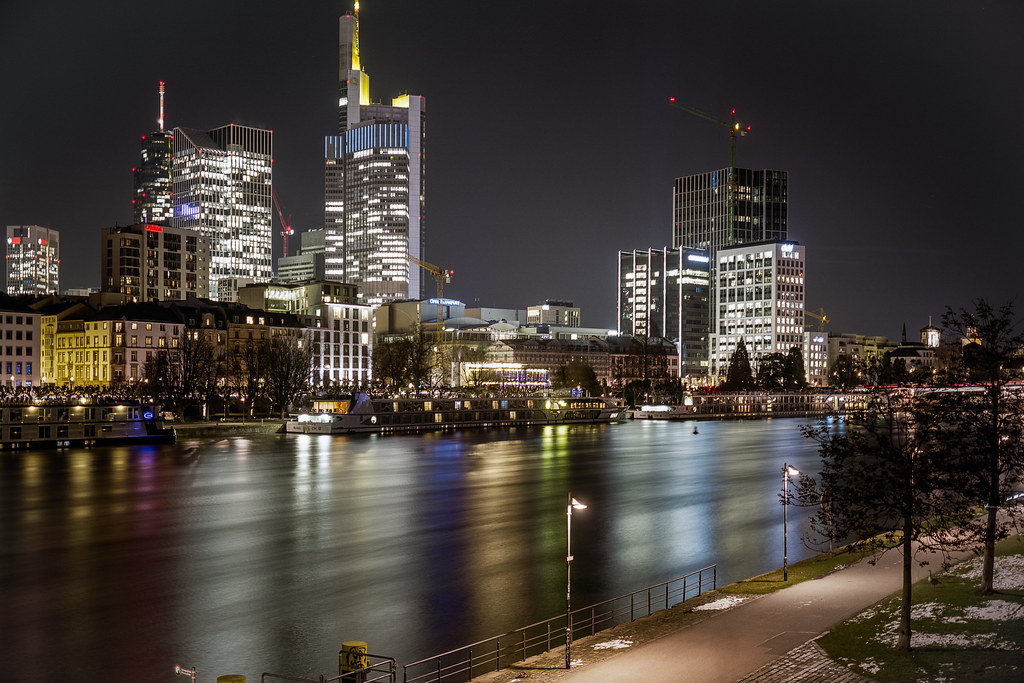Latest News
10 ways Frankfurt has changed from being dull to dynamic
December 9th 2018
By The Local

Twenty years ago, Frankfurt quite rightly had a reputation for being a dull, one-dimensional city with nothing but its financial centre to help it stand out. Times have changed though, with steady growth of jobs and investment in the city and surrounding areas giving the city much greater wealth than just money alone.
Germany's economic success has been focused on Frankfurt, with the surrounding region boasting one of the country's lowest unemployment rates and one of its fastest growing populations.
So here are ten reasons why Frankfurt no longer deserves its reputation as Germany's 'dull' financial centre:
1. International make-up
Thanks to the many international companies that have set up in Frankfurt, the city has become a melting pot of languages and cultures. "Mainhattan" is now more than 25 percent foreign nationals, making it Germany's most international city and driving growth in all sorts of foreign events, services and parties.
Walking the streets, you will hear many languages, and the expat network has developed into a lively social scene with monthly events in a variety of tongues.
2. Party town
Germany's most famous festival might be Munich's Oktoberfest, but few cities can now compete with Frankfurt's constant party atmosphere from May through to October. The narrow city streets and compact city design lend themselves perfectly to the many street festivals that the city has to offer.
3. Christmas delights
Deserving a whole point on its own, Frankfurt's Christmas market is now close to rivalling Nuremberg's famous event. Almost the entire city centre is now taken over for four weeks by stalls that wind around the old city centre streets.
4. From exclusive bars...
Frankfurt may now be one of the most expensive German cities to live in, but the large number of well-paid residents has driven a growth in up-market bars and clubs. From well-heeled cocktail bars, to members-only drinking lounges and exclusive bars in the skyscrapers with a view of the city, there is something for everyone.
5. ... to world-famous rock bands
And not to be outdone, the large student population of around 50,000 drives the more affordable nightlife of bars, pubs, and live music concerts that are increasingly featuring the biggest international names.
6. A cluster of museums
If your tastes are more cultural in preference, then Frankfurt's museums and galleries are unlikely to disappoint. The city now has one of the highest numbers of museums per capita in Germany, 13 of which are clustered on the famed Museumsufer, or Museum Riverbank on the river Main. The museums are even worthy of their very own festival, allowing entry for a fraction of the normal price and shuttle buses ferrying people from one venue to the next.
7. From biking to blades
For the more active city dwellers, Frankfurt hasn't just got the hills to the north for hiking and biking, and the river for rowing - the city is also taken over every week by night-time skaters in the hundreds.
Escorted by police on bikes and skates, the pack of skaters wind their way across the city in a bright display that is worth watching even if you can't join in.
8. A food explosion
The best part of Frankfurt's international profile is now the explosion in cuisines from around the world. From budget to gourmet, there is everything available that you could think of. Even the city's once notorious Bahnhofsviertel(train station quarter) is now buzzing with low-cost foreign restaurants and bars.
9. Huge fairs
And if all of that isn't enough to convince you, the city's massive downtown conference area is completely taken over by the biannual international automotive fair and annual Frankfuirt Book Fair, the world's oldest and largest international book fair. Between them, these two events draw in many hundreds of thousands of visitors from Germany and abroad.
10. A bit of R&R
Lastly, after all the excitement, rest and recuperation is needed. There is a reason why north of Frankfurt is where Kaiser Wilhem II decided to build his summer residence at Bad Homburg.
The hills north of Frankfurt have been occupied since Roman times thanks to their spring waters and the region is still dotted with both public and private spas and wellness centres.